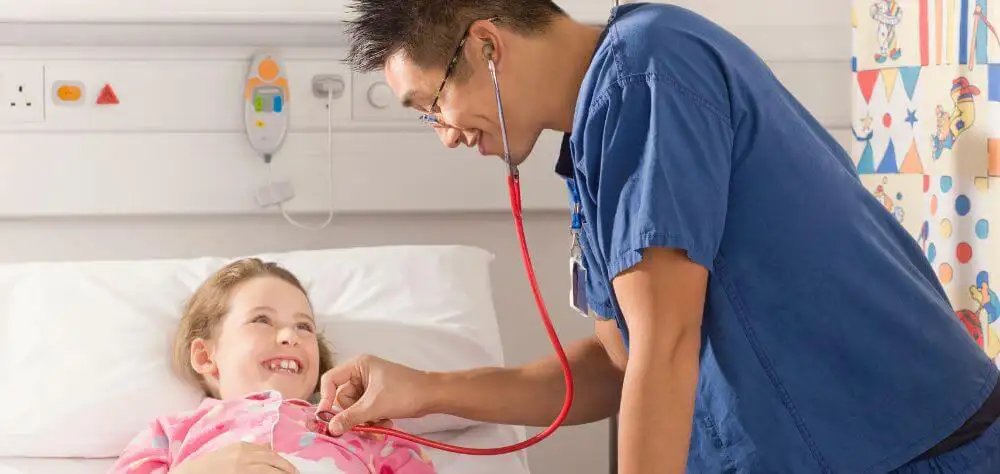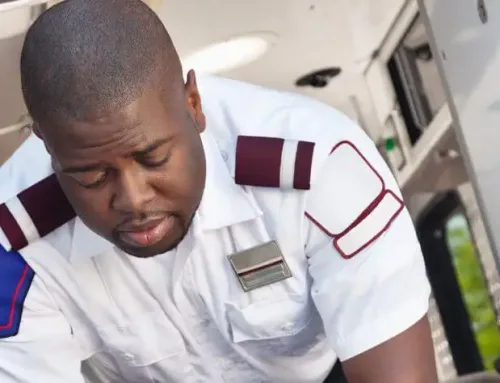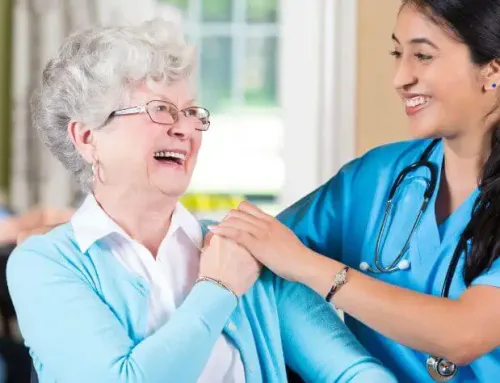How to Become a Certified Child Life Specialist: A Step-by-Step Guide
If you’re wondering how to become a Certified Child Life Specialist, you’re looking at a career that makes a real impact on children and families in healthcare settings. Certified Child Life Specialists (CCLS) help young patients navigate medical experiences with play therapy, education, and emotional support, turning hospitals into less intimidating places. They work closely with doctors, nurses, and families to ensure children feel safe, heard, and empowered.
Certification is key to maintaining high professional standards and demonstrating expertise in child life services. Earning a Certified Child Life Specialist (CCLS) credential requires specialized education, clinical training, and passing a national exam. At SCU, our Bachelor of Science in Health Sciences (BSHS) program provides a strong foundation in healthcare and child development, making it an excellent starting point for those pursuing CCLS certification and a career in pediatric healthcare!
Helping Kids Heal: The Work of a Certified Child Life Specialist Explained
A Certified Child Life Specialist (CCLS) plays a vital role in pediatric healthcare, helping children and families cope with medical treatments, hospital stays, and difficult diagnoses. Using play therapy, education, and emotional support, they turn medical experiences into something less intimidating and more manageable for young patients.
Unlike doctors or nurses who focus on physical health, a CCLS prioritizes the emotional and psychological well-being of children in healthcare settings. Their work is essential in ensuring that a child’s hospital experience is not just about treatment, but about understanding, comfort, and care.
What Does a Certified Child Life Specialist Do?
A Child Life Specialist is trained to help children process and navigate medical experiences in a way that feels safe and supportive. Their responsibilities include:
- Reducing anxiety through play therapy and activities Using toys, games, and storytelling to make medical environments feel familiar and less overwhelming.
- Preparing children for medical procedures Explaining treatments in age-appropriate language so kids feel informed and empowered.
- Providing emotional support for families Helping parents and siblings understand and cope with the challenges of a child’s medical condition.
- Offering grief and bereavement support Assisting children and families through difficult diagnoses or end-of-life care situations.
Their work helps young patients feel more in control of their experiences, making healthcare settings less intimidating.
How Is a CCLS Different from Other Pediatric Healthcare Roles?
While social workers, therapists, and pediatric nurses all support children in medical settings, a Certified Child Life Specialist focuses specifically on emotional support and coping strategies during medical treatment.
- Social Workers assist families with financial resources, discharge planning, and broader psychosocial concerns.
- Pediatric Therapists (occupational, speech, or physical) focus on physical rehabilitation and skill-building.
- Nurses & Doctors provide direct medical treatment, while a CCLS helps children process and emotionally adjust to their care.
A CCLS acts as the child’s emotional guide, ensuring they understand what’s happening and feel supported through every step of their medical journey.
Where Do Certified Child Life Specialists Work?
Child Life Specialists work in a variety of healthcare settings, bringing comfort and guidance to children and families.
- Children’s Hospitals Supporting young patients through surgeries, chronic illness treatments, and long-term care.
- Pediatric Clinics Assisting children undergoing routine procedures, vaccinations, or specialized treatments.
- Rehabilitation Centers Helping children recovering from injury, surgery, or physical therapy regain confidence.
- Hospice & Palliative Care Providing emotional support for children facing terminal illnesses and guiding families through difficult transitions.
Wherever children receive medical care, Child Life Specialists ensure that emotional healing is part of the process.
A Certified Child Life Specialist helps children build resilience, understand their treatment, and regain a sense of normalcy in unfamiliar medical environments. Their work is at the heart of pediatric emotional care, ensuring that young patients feel supported every step of the way.
For those drawn to a career that blends child psychology, healthcare, and advocacy, becoming a CCLS is a path filled with meaning, impact, and the chance to make a real difference in children’s lives.
Step 1: Earn a Relevant Bachelor’s Degree
Every great career starts with the right education, and becoming a Certified Child Life Specialist is no exception. The Association of Child Life Professionals (ACLP) requires a bachelor’s degree in a relevant field to ensure specialists have a strong foundation in child development, healthcare, and psychology.
Choosing the Right Degree Program
Not all degrees align with Child Life Certification, so it’s important to pick a field of study that meets ACLP requirements. The best options include:
- Health Sciences
- Psychology
- Child Development
- Human Development & Family Studies
Each of these degrees provides a solid academic foundation for understanding how children process medical experiences and how to best support them.
Recommended Coursework
To ensure Child Life Specialists are well-prepared, the ACLP requires 10 core courses as part of a bachelor’s degree program. These courses provide the theoretical and practical knowledge needed to work effectively with pediatric patients and their families.
Here’s a look at some of the most important subjects:
- Child Life Theory The foundation of child life practice, covering play therapy, coping strategies, and emotional support techniques.
- Developmental Psychology Focuses on how children grow cognitively, emotionally, and socially from infancy through adolescence.
- Family Systems Examines the role of family dynamics in healthcare settings and how illness affects children and their caregivers.
- Medical Terminology Teaches students how to navigate medical language, helping them communicate effectively with healthcare teams and families.
- Ethics in Healthcare Covers ethical decision-making, patient rights, and best practices for advocating for pediatric patients.
A strong academic foundation is the first step in becoming a CCLS, preparing students for internships, certification, and real-world patient interactions.
Step 2: Gain Hands-On Experience Through Internships
Becoming a Certified Child Life Specialist isn’t just about textbooks and exams—it’s about real-world experience. The ACLP requires 600 hours of a supervised Child Life Internship, ensuring that every specialist has firsthand experience working with young patients. This is where aspiring professionals learn how to translate classroom knowledge into meaningful interactions with children and families navigating medical challenges.
Importance of Clinical Experience
No degree program can fully prepare you for the fast-paced, emotional, and deeply rewarding nature of child life work. That’s where internships come in. These experiences immerse students in hospital environments, allowing them to work directly with children, families, and medical professionals. Interns gain critical exposure to how healthcare teams function, how to interact with patients facing serious diagnoses, and how play therapy and education can ease a child’s anxiety.
- Patient Interactions Interns learn how to communicate with children in medical settings, providing emotional support and coping strategies.
- Hospital Experience They observe and participate in the daily work of Child Life Specialists, bridging the gap between theory and practice.
- Interdisciplinary Exposure Interns work alongside doctors, nurses, therapists, and social workers, learning how child life fits into the broader healthcare system.
By the end of their 600-hour internship, aspiring specialists aren’t just more knowledgeable—they’re confident, skilled, and ready for the next step.
Tips for Landing a Competitive Internship
- Apply Early Many hospitals have a limited number of spots, and deadlines can be months in advance. Start researching programs as soon as possible.
- Volunteer First Having hospital volunteer experience on your resume shows initiative and commitment, making you a stronger candidate.
- Perfect Your Application A standout resume and personal statement can make all the difference. Focus on highlighting your relevant coursework, experience with children, and passion for pediatric healthcare.
Internships are more than a requirement—they’re the gateway to certification, employment, and a career dedicated to helping children and families navigate medical experiences with confidence and care.
Step 3: Prepare for the Child Life Certification Exam
The Child Life Professional Certification Exam is the last big hurdle before stepping into the field as a Certified Child Life Specialist (CCLS). It’s your chance to prove that you understand the core principles of child life—how to assess a child’s needs, advocate for families, and create meaningful interventions in a healthcare setting.
Understanding the Exam Format
The Child Life Certification Exam is structured to test both knowledge and decision-making. It consists of 150 multiple-choice questions, each one designed to evaluate how well you can assess, interpret, and respond to the emotional and developmental needs of children in medical settings. The exam is broken into three main sections:
- Professional Responsibility (30%) Covers ethics, advocacy, and the role of Child Life Specialists in patient care.
- Assessment (30%) Focuses on evaluating a child’s emotional, social, and cognitive needs in a healthcare environment.
- Intervention (40%) Examines the use of play therapy, coping strategies, and family-centered care to help children navigate medical challenges.
This isn’t a test that rewards rote memorization. It demands an ability to apply theoretical knowledge in practical, sometimes high-pressure situations, much like the job itself.
Best Study Strategies
A strong study plan is built on focus, strategy, and real-world application. The goal isn’t just to pass the exam, but to prepare for the daily realities of working with children in hospitals, clinics, and other healthcare settings.
- Use ACLP study guides and practice tests. These resources don’t just introduce you to the exam format; they reinforce the core knowledge you’ll need in practice.
- Join study groups or online forums. Discussing case scenarios and ethical dilemmas with other aspiring Child Life Specialists helps solidify your understanding and sharpen your analytical skills.
- Reflect on your internship experiences. Many exam questions are scenario-based, meaning the hands-on work you’ve done will be just as valuable as the textbooks you’ve studied.
The key to passing isn’t just knowing the material—it’s being able to think like a Child Life Specialist. Approach the exam the way you would approach the job: with preparation, insight, and the ability to adapt to whatever comes next.
Step 4: Apply for Certification & Pass the Exam
After months of coursework, hundreds of internship hours, and countless study sessions, you’re almost there. But before you can call yourself a Certified Child Life Specialist (CCLS), you need to officially apply for certification through the Association of Child Life Professionals (ACLP) and pass the final exam.
To be eligible, you must have completed a bachelor’s degree with the required coursework and a 600-hour ACLP-endorsed internship. Once that’s checked off, it’s time to submit your application. You’ll need proof of your internship hours, academic transcripts, and the application fee—triple-check everything to avoid delays. The sooner it’s processed, the sooner you can schedule your exam.
On test day, preparation meets execution. Get a full night’s rest instead of cramming. Pace yourself during the exam, focusing on the highest-scoring sections first. If a question stumps you, use elimination strategies to narrow down the best choice. And remember: this isn’t just about passing a test. It’s about proving you’re ready to step into a role where real children and families will depend on you.
The Right Education, the Right Training—SCU Sets You Up for Success
Becoming a CCLS takes the right combination of education, clinical experience, and hands-on training. At SCU, we designed our Bachelor of Science in Health Sciences (BSHS) program to help students meet these requirements with a flexible, online degree that prepares them for careers in pediatric healthcare.
With healthcare-focused coursework, flexible online learning, and interdisciplinary training, our program supports students pursuing careers in child-focused healthcare roles. Whether you’re starting your education or looking to advance, SCU provides the knowledge and skills to help you make a meaningful impact in pediatric healthcare settings.
SCU’s Bachelor of Science in Health Sciences (BSHS) Program
Our BSHS program is designed for students pursuing careers in pediatric healthcare, patient advocacy, or healthcare leadership. The fully online, transfer-friendly format allows students to complete their degree while balancing work, family, or other commitments.
- Comprehensive healthcare coursework Covers health education, psychology, and patient communication, providing a strong foundation for working with children in healthcare settings.
- Built for career advancement Equips students with critical thinking and interdisciplinary healthcare knowledge, supporting pathways to graduate studies or hands-on healthcare roles.
- Supportive learning environment Small class sizes and experienced faculty help students develop the skills and confidence needed for success in healthcare and patient support roles.
Investing in Your Future as a Child Life Specialist
Pursuing a career as a Child Life Specialist is a meaningful and rewarding path, and we’re committed to making that journey accessible. With our Fixed Rate Tuition Guarantee, students lock in their tuition costs from start to finish—no unexpected increases, just transparent pricing.
We also offer scholarship opportunities to help eligible students reduce costs while focusing on their education and career goals. Whether you’re just starting or looking to advance, SCU provides the flexibility, support, and financial resources to help you achieve your dream of making a difference in pediatric healthcare.
Start Your Journey to Child Life Certification Today
Understanding how to become a certified child life specialist is the first step toward a career filled with purpose. With the right education, hands-on experience, and a solid plan for certification, you’ll be prepared to provide meaningful support to children and families in medical settings. SCU’s Bachelor of Science in Health Sciences (BSHS) program gives you the knowledge and flexibility to meet these requirements and move forward with confidence.
Now is the time to turn your passion into a profession. With online learning, transfer-friendly options, and clinical internship support, we make it easier to take that next step. Explore our admission requirements and start your journey toward child life certification.
FAQs
How to become a certified child life specialist?
To earn certification, you need a bachelor’s degree in a relevant field, complete a 600-hour ACLP-approved internship, and pass the Child Life Professional Certification Exam. The Association of Child Life Professionals (ACLP) sets these requirements to ensure specialists are well-trained in pediatric healthcare support.
How long does it take to become a Certified Child Life Specialist?
It typically takes four years to earn a bachelor’s degree, plus additional time for the 600-hour internship and exam preparation. Some students complete everything within five years, while others take longer if they’re balancing work, school, or other commitments.
Can I transfer credits into SCU’s BSHS program?
Absolutely! We welcome transfer students and work with them to maximize their previous coursework. If you’ve completed relevant college credits, our academic advisors will help you apply them toward your degree, making your path to graduation faster and more affordable.
Is SCU’s BSHS program fully online?
Yes! Our program is 100% online, giving students the flexibility to study from anywhere while balancing work, family, or other commitments. The curriculum is designed to prepare students for certification and careers in pediatric healthcare.
How difficult is the Child Life Certification Exam?
The exam is challenging but manageable with the right preparation. It consists of 150 multiple-choice questions covering professional responsibility, assessment, and intervention. Success comes from using ACLP study guides, reviewing internship experiences, and practicing with sample exams to build confidence.
Related Posts





